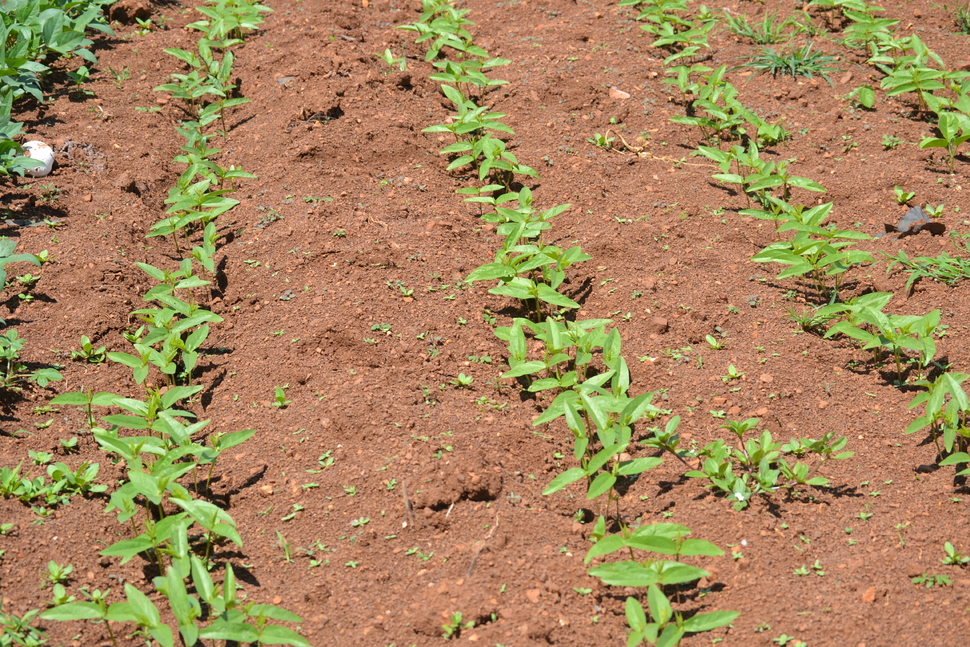Phase 1: Developing the Curriculum
The first step in developing a suitable course was to define the curriculum. Together with
Mr. Achuti, we spent two days identifying key job functions within greenhouse farming.
The key job functions identified include ‘Greenhouse Constructor’, ‘Greenhouse Nursery
Manager’, ‘Greenhouse Crop Producer’, and ‘Greenhouse Manager’.
Each function is divided into modules, covering the various aspects of the job function.
The modules are developed in such a way that a single module can be accomplished
within a relatively short duration of time allowing trainees to move into employment
upon completion. Each module is a stand-alone, marketable and certifiable.
Phase 2: Developing the Content of the Modules
After Dr. Andika’s and Mr. Achuti’s feedback and thorough scanning and revision of the
curriculum, the next step was to develop the content of the modules. These module
packages will provide the trainer(s) with fundamental information that he/she can use
for the classes.
For this phase we were introduced to the third year bachelor students of agriculture. Dr.
Andika arranged a meeting on December 18th to meet the seven enthusiastic students.
Unfortunately, they were in a period of examinations. This meant we couldn’t start
working together until after December 4th. We agreed to start working on the course
and meet with them once they finished their exams.
Due to planned activities, such as the construction of the greenhouse, we started
working out the modules on December 1st. We divided the various modules among
each other. It was quite a challenge to do research, mainly due to the lack of Internet
access. Also, the University library did not have relevant resources. The majority of
the agricultural books was out-dated or specifically written for other countries and/or
climate conditions. On a daily basis, we shuttled between the University and the nearby
‘Pride Hotel’ to get access to (relatively) good Internet.
By the time the students finished their exams a large amount of content had been
written. We sat down in pairs to review our work. They generously shared their
knowledge, giving advice and making adjustments where needed.
We managed to finish the course in the second week of December; this includes the
curriculum, the modules and support documents, such as evaluation forms for the
trainers and participants.
We arranged a meeting with Dr. Andika to discuss our progress. Overall he was satisfied
with our commitment and result, but he needed more time to thoroughly check the
content. We agreed to make the recommended adjustments thus far and give him the
final draft before the Christmas holiday.
Phase 3: Evaluating and Adjusting Course Material
Over the Christmas holidays Dr. Andika took the time to revise our work. In the second
week of January, he set up a meeting with us to discuss the final draft. Fortunately, there
were only a few points to be adjusted, such as adding some additional information to
certain modules. Furthermore, Dr. Andika advised us to make a compacted booklet of
the ‘Course Curriculum’, including practical information about costs, time, etc. These
booklets can be used as promotion material by handing them out to those farmers who
are interested in following the course. Since we do not have a clear idea of the course
duration and costs, we agreed to make this booklet in a later stadium.
Besides Dr. Andika, Alice also gave her comments on the course content. We applied
their feedback and the final course package was completed.
Phase 4: Implementation
Initially, the plan was to start the course right after the Christmas Holidays. This was
postponed to January 15th, three days after our Open House. We had reached the
maximum amount of participants and Mr. Achuti had arranged with the farmers to start
the course. However, the University posed problems, because they were not informed
about Mr. Achuti’s plans yet. Because of the bureaucracy of the University, the start
of the course was delayed again. On Tuesday, January 19th, the plans of the course
were discussed during a meeting with the Vice Chancellor. The VC promised the course
could start for free in the first week of February, but a formal request had to be hand
in first and he wanted to have a meeting with Mr. Achuti and Dr. Andika to discuss the
organisational aspects.
Please contact us to get the entire course and curriculum (150 pages total) on greenhouse farming.
